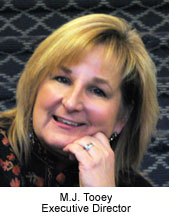
On April 10th the HS/HSL hosted the symposium Are You Connect.ed? Social Networking Tools for Collaborating, Teaching & Learning. Our simple goal was to introduce attendees to social networking technologies and the possibilities for use in our various communities. By all accounts it was an incredibly successful day, with literally hundreds of people attending presentations, classes, vendor sessions and playing in a technology sandbox.
Andy Carvin, our keynote speaker and NPR’s senior strategist for social media and senior product manager for online communities, commented that we shouldn’t get caught up in labels and terms like social networking or Web 2.0. The "web" is the "web" – it doesn’t have versions. And he prefers "social media" to the term "social networking," as it allows us to think more inclusively about this wide variety of social tools. I think he is right. We use terms to compartmentalize and organize ideas, but this can be a narrow way of thinking and may even slow us down. Users of social media need to evolve – to become people who go with the flow – and I have vowed to erase these terms from my vocabulary!
Other things I learned:
- Focus on what you want to accomplish. Don’t just use social media because you can. Use it because it enhances and supports your goals.
- Experiment. We won’t always get things right the first time, and we will have to modify and occasionally admit that things aren’t working as well as we hoped. Failure is an option and taking risks is important.
- Go where our users are. For a good while to come, we will need to exist in communities that are in multiple places with multiple needs and multiple learning styles. We need to meet our community wherever we can.
Over the course of the next few days and weeks we will be linking the presentations, making the social networking sandbox available, posting podcasts, and meeting with colleagues to build some next-step partnerships. As libraries evolve to more closely meet the needs of our communities, some of these social media tools may be just what we need. We look forward to this evolution.










